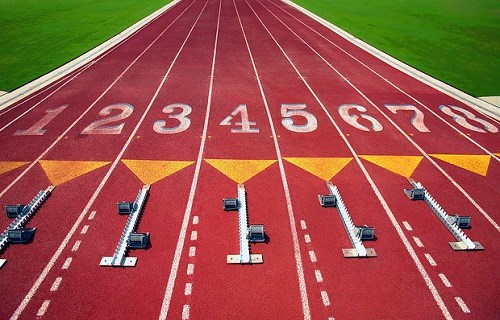New claims further involve IAAF top in Russian doping cover-ups
New documents revealed in the latest documentary from German broadcaster ARD by journalist Hajo Seppelt, this time in cooperation with French newspaper Le Monde, broaden the involvement of former leaders of the International Association of Athletics Federations (IAAF) in the doping scandal that hit athletics in 2014.
The documentary also widens the number of athletes believed to have been part of the scheme through which athletes with conspicuous blood tests have allegedly paid IAAF top officials in return for participation in international competition. According to ARD, six named Russian athletes are believed to have paid between $318,000 and $740,000 each.
A number of emails sent shortly after ARD raised the first allegations of doping cover-ups in Russian athletics, provides details into the relationship between the Russian Athletics Federation (ARAF) and the IAAF. According to ARD, the IAAF repeatedly wrote then ARAF president Valentin Balakhnichev about the failed tests of six Russian athletes, emails that were answered by threats to expose information that links the IAAF to the scandal, the documentary entitled ‘Top Secret: The Protection Racket’ says.
“Let us remind you that the background of these six cases from the very beginning was very far from any legal and ethical frames,” an email signed by ‘Valentin’ says, according to ARD. The email is reprinted on ARD’s website.
“As we understand, after a 3-years conspiracy game, you decided to play ‘fair’ and in accordance with IAAF rules. It is your choice but we are confident that it is not a wise step,” the email continues. “This will ruin not only the ARAF, the reputation of the IAAF, its Presidency and key antidoping responsible officers will get huge black spot.”
According to the email, the IAAF and ARAF had been running a “total protection project”, allowing athletes, who had tested positive for doping to compete in the London Olympics in 2012.
The email is part of documents in the possession of the French prosecutors who are investigating the allegations raised in the former ARD documentaries, allegations that also formed the basis of two WADA commissioned reports. The WADA reports described extensive corruption, nepotism and abuse of power in the IAAF as well as an undermining of the anti-doping structure in the association.
WADA, too, comes under fire in this latest documentary. According to the documentary, WADA wrote the IAAF in the fall of 2014 to inform about the suspicious blood tests as well suspicions of a blackmailing scheme, writes ARD on its website. When confronted by Seppelt earlier this month with a list of athlete names and their alleged extortion payments, WADA president Sir Craig Reedie denied having any prior knowledge about this.
Former president of the ARAF and IAAF treasurer Balakhnichev, former ARAF chief coach for long-distance athletes Alexei Melnikov, and Papa Massata Diack, former IAAF consultant and son of former IAAF president Lamine Diack, were banned for life by the IAAF ethics commission following the release of the WADA reports.
More information
- Article in Le Monde (paywall)
- The ARD documentary: Top Secret: The Protection Racket’
- ARD press release about the documnetary






